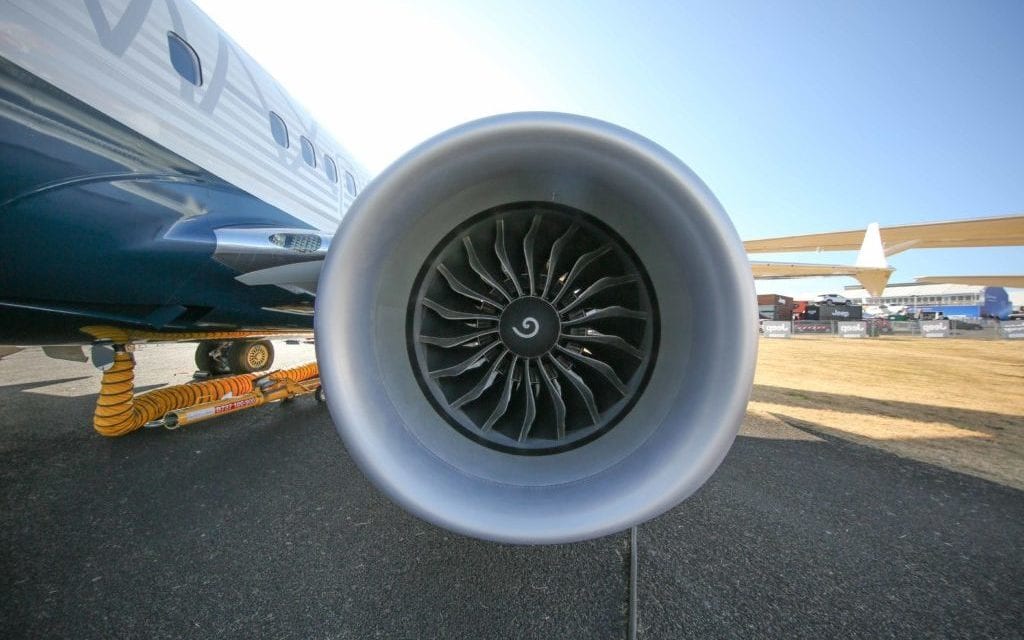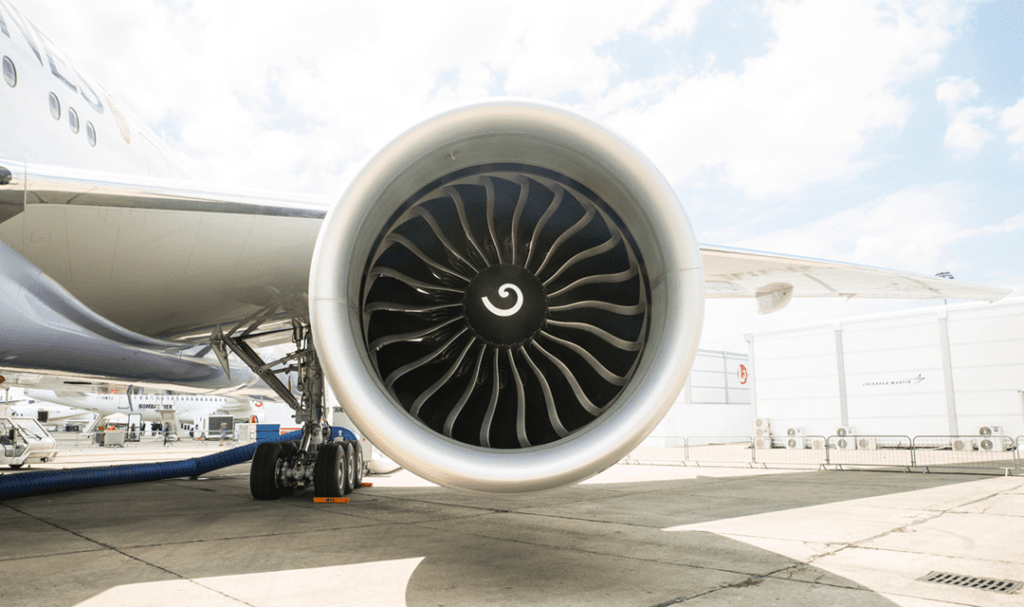GE Aerospace recently achieved a significant milestone in its sustainability program – the completion of testing on its 10th engine model utilizing 100% Sustainable Aviation Fuel (SAF) since 2016.
GE Aerospace Testing Programs
The engine testing program originally began in 2018 when GE90 engines powered the first commercial airliner flight with 100% SAF on the Boeing ecoDemonstrator, a 777 freighter in collaboration with FedEx Express.
Subsequent milestones included the deployment of LEAP-1B engines in a United Airlines Boeing 737-8, marking the first passenger experimental flight with 100% SAF in one of the two engines.
In 2023, the LEAP-1B engines reached new heights by powering test flights on 100% SAF in both engines of the Boeing ecoDemonstrator Explorer, a 737-10 destined for United Airlines.
Notably, Emirates made history in November as the first airline to operate an Airbus A380 using 100% SAF in one of the four GP7200 engines.
[monsterinsights_popular_posts_inline]


A Comprehensive Testing Portfolio
GE Aerospace’s oversight now encompasses a diverse range of engines such as F414, GE9X, LEAP-1A, Passport, GEnx, HF120, and CFM56.
These tests cover various propulsion systems used in domestic and international commercial air travel, military aviation, and business and general aviation.
Rigorous evaluations span engine performance, contrail and emission impact, and other critical factors.
A testament to its significance in the aviation landscape, GE Aerospace and its joint ventures currently power three out of every four commercial flights globally.
Mohamed Ali, vice president of engineering for GE Aerospace, emphasized, “These tests demonstrate that we are leading and prepared to support our customers to operate on Sustainable Aviation Fuel.”
Achieving Industry Net Zero Targets
Aligned with the aviation industry’s ambitious goal of achieving net-zero CO2 emissions by 2050, GE Aerospace plays a pivotal role in supporting this initiative.
In November, governments set a goal for aviation fuel in 2030 to be 5% less carbon-intensive than conventional jet fuel today.
GE Aerospace actively advocates for supportive government policies, echoing the sentiments of seven chief technology officers from major aviation manufacturers.
These leaders, including GE Aerospace, called for policies accelerating the availability and adoption of qualified SAF to facilitate the industry’s transition to more sustainable practices.
Revolutionary Technologies for Increased Engine Efficiency
Meeting long-term net-zero goals necessitates revolutionary technologies for enhanced engine fuel efficiency.
GE Aerospace is at the forefront with multiple demonstrators, including the CFM RISE (Revolutionary Innovation for Sustainable Engines) program and the Electrified Powertrain Flight Demonstration project with NASA.
The CFM RISE program targets over 20% better fuel efficiency with 20% lower CO2 emissions compared to the most efficient engines currently in service.
Innovations such as a new open fan engine architecture and hybrid electric systems are in development, designed for compatibility with 100% SAF.
GE Aerospace exemplifies its commitment to sustainability by being an inaugural investor in the United Airlines Ventures Sustainable Flight Fund.
This fund aims to increase the supply of SAF, contributing to a greener aviation ecosystem.
About Sustainable Aviation Fuel (SAF)
All GE Aerospace and partner engines can operate on approved SAF blends today, sourced from renewable materials like plant-based material, fats, oils and greases, alcohols, waste streams, and captured CO2.
SAF blends share the same chemical composition as conventional jet fuel but are derived from partially or completely renewable sources, reducing CO2 emissions over the fuel’s life cycle.
Currently, SAF approved for use is a synthetic component blended with petroleum-based Jet A or Jet A-1 fuel up to 50%.
GE Aerospace is actively involved in developing standardized industry specifications supporting the adoption of 100% drop-in SAF, eliminating the need for blending with conventional jet fuel.

Click the banner to subscribe to our weekly newsleter.

Click the photo to join our WhatsApp channel so then you can stay up to date with everything going on in the aviation industry!









